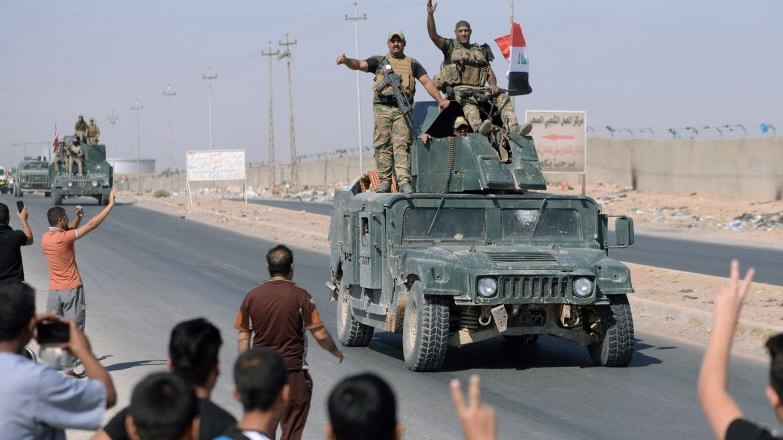15 years ago, a US led coalition invaded Iraq to oust its president Saddam Hussein and find weapons of mass destruction they had claimed the country had owned.
After an intense manhunt Saddam was captured, and, after a hush trial, was executed.
But there was a major problem.
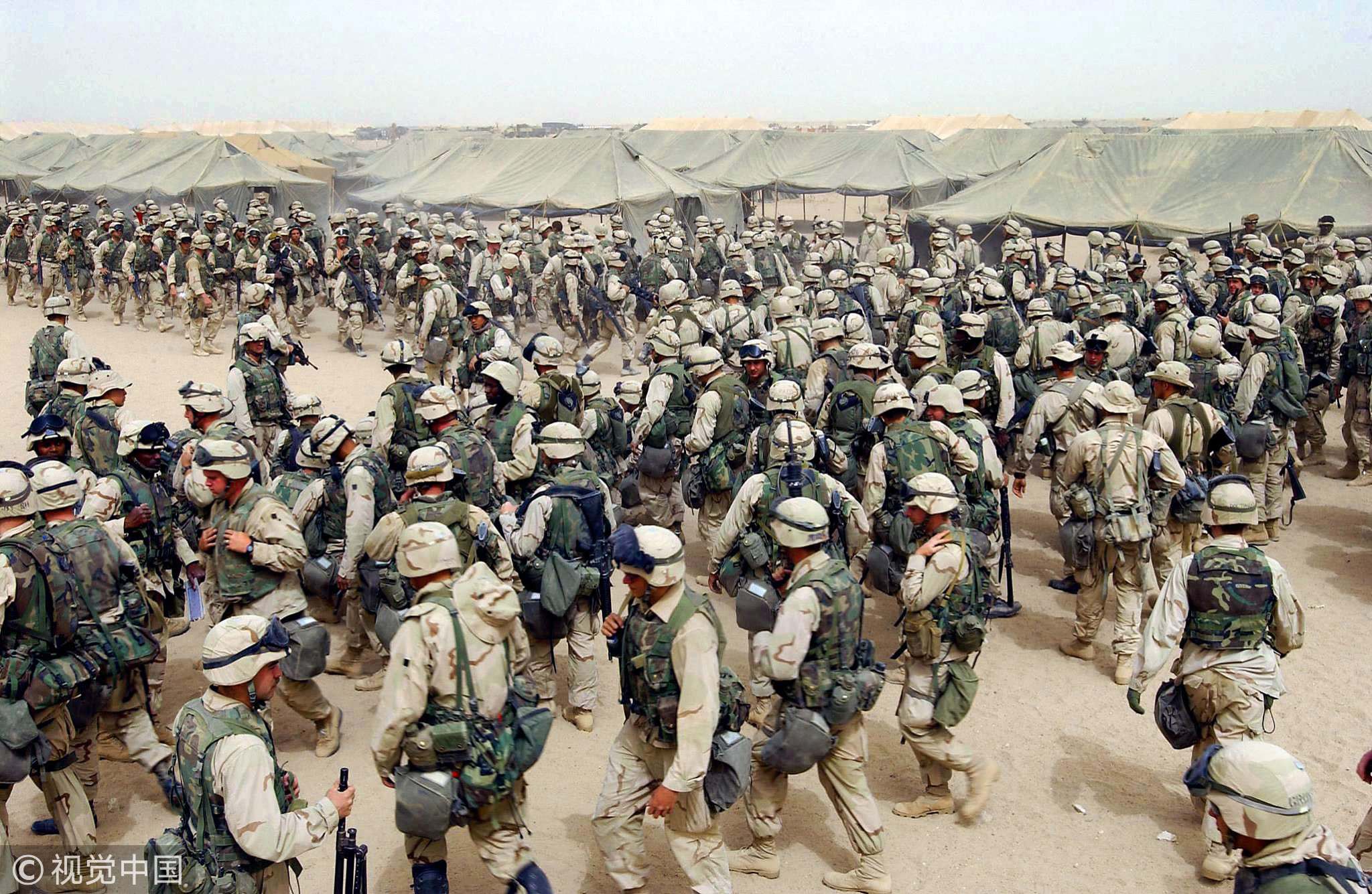
US Marines from the 2nd battalion/8 MAR, prepare themselves after receiving orders to cross the Iraqi border at Camp Shoup, northern Kuwait, March 20, 2003. /VCG Photo
US Marines from the 2nd battalion/8 MAR, prepare themselves after receiving orders to cross the Iraqi border at Camp Shoup, northern Kuwait, March 20, 2003. /VCG Photo
There were no weapons of mass destruction… the invasion, which had not been backed by the United Nations, had been based on baseless intelligence.
What was supposed to be a short war also then led to a long occupation that did little to remedy many of the problems created by the conflict.
Despite this, many Iraqis say they did initially welcome the US troops.
"We hoped the salaries would rise and the living would get better for the first couple of months after the fall of the former regime. That time we were dreaming of the high level of living, freedom," said fireman Abu Hasan, while drinking tea in one of Baghdad’s bustling market streets.
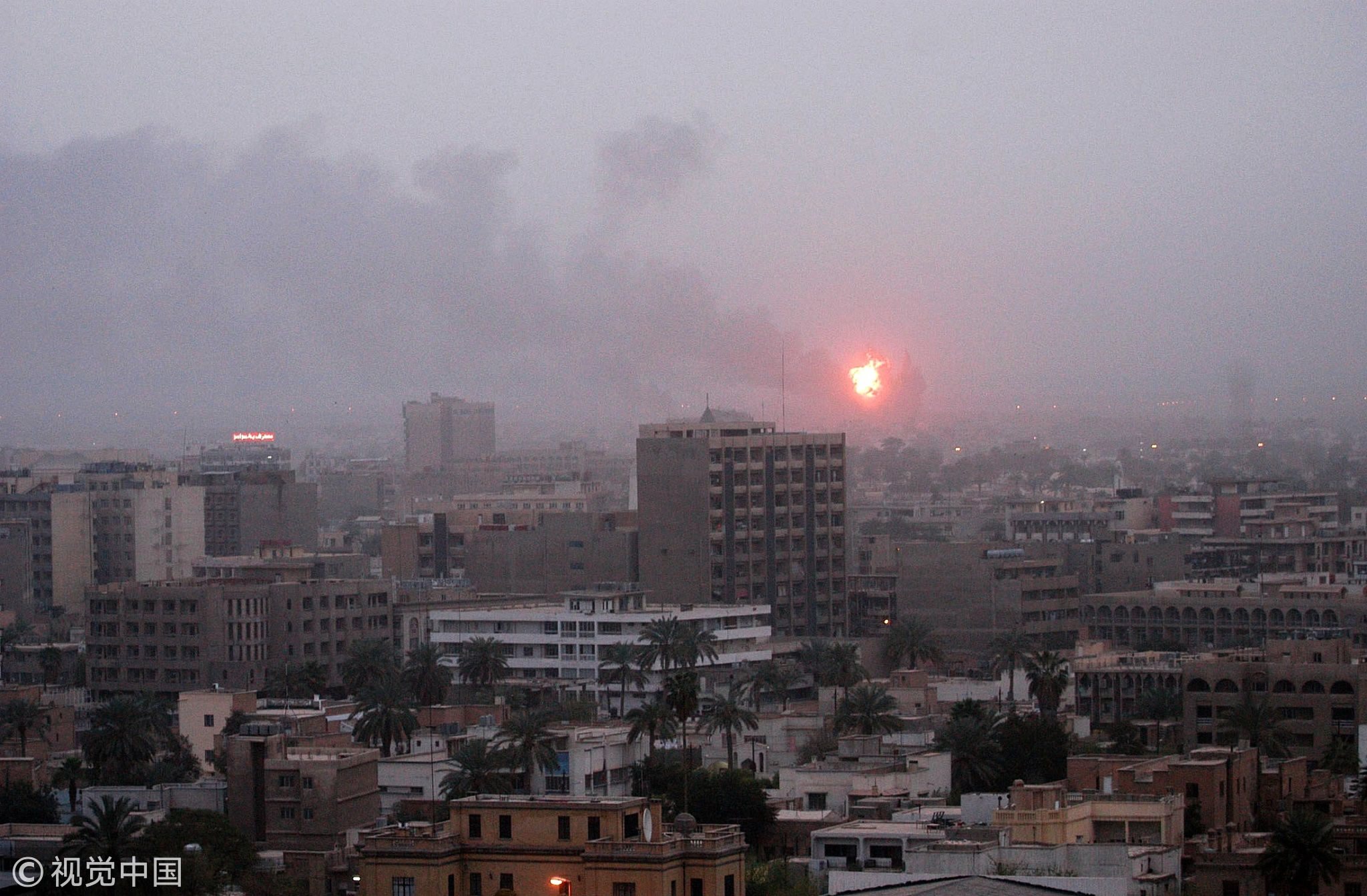
Smoke from an explosion appears over the Iraqi capital of Baghdad in the first hour of the war led by the United States on Thursday, March 20, 2003. /VCG Photo
Smoke from an explosion appears over the Iraqi capital of Baghdad in the first hour of the war led by the United States on Thursday, March 20, 2003. /VCG Photo
"A year after, the situation got worse than the year before, and to tell you the truth we started to wish to go back to the Saddam regime," he said.
The disbanding of the Iraqi army by the US made matters worse as it created an instant insurgency.
But the inexperienced and often revenge motivated policies of Iraqi’s new breed of politicians also fuelled the flames.
"The wish for change was a dream for Iraqis, therefore toppling the former regime was not a mistake. What happened after the ex-regime fell was that we failed to provide a good example with our politics," said Strategic Studies expert Ahmed al-Sharify, a former air force pilot in Saddam’s time who was jailed for an attempted coup plot. His brother was executed.
Shiite Muslims, who had been marginalized under Saddam, found new freedom.
Sunnis who had been favored by Saddam suddenly found themselves out of work and often persecuted.
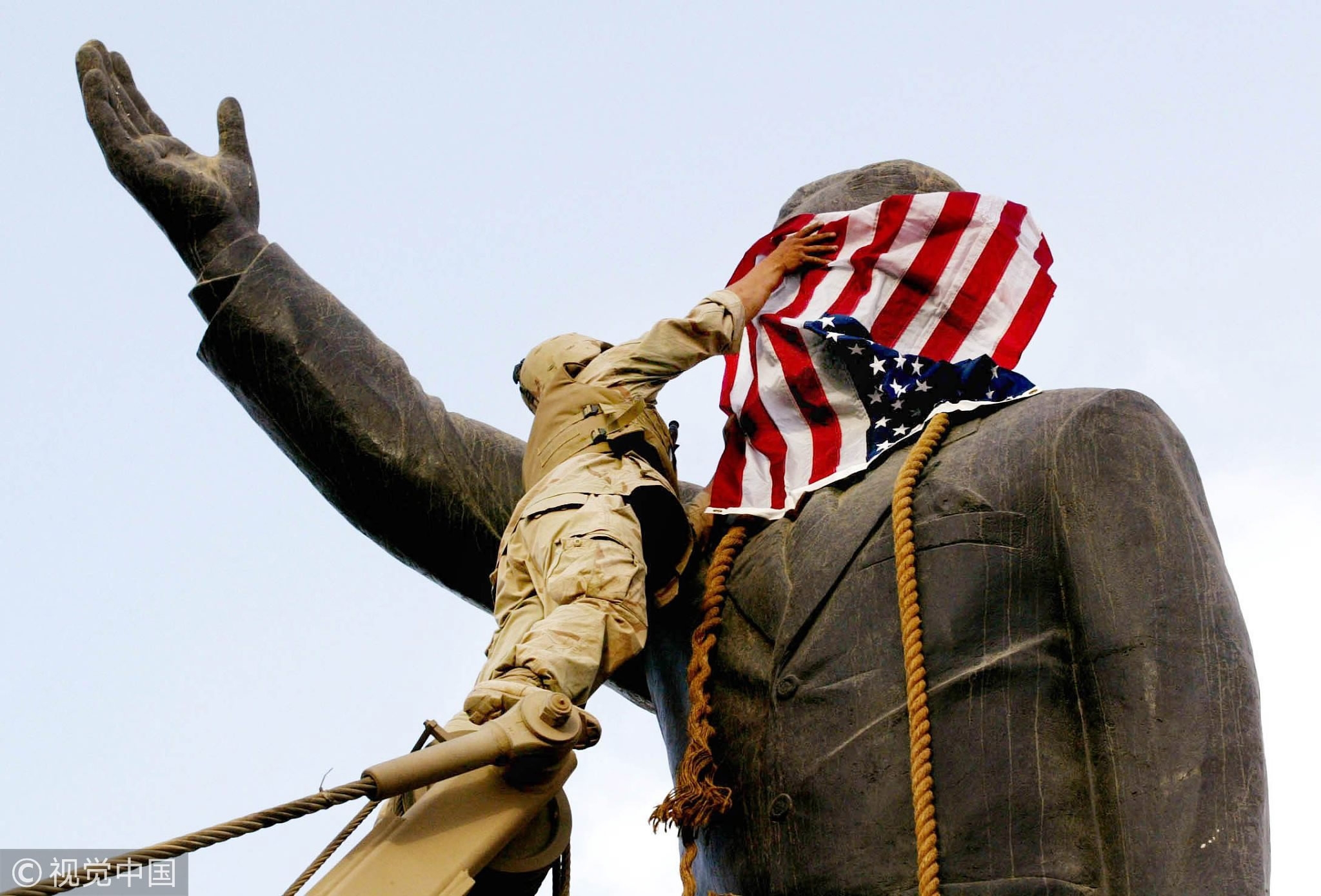
Iraqi President Saddam Hussein's statue in Baghdad's al-Fardous square is pulled down with the help of US Marines. /VCG Photo
Iraqi President Saddam Hussein's statue in Baghdad's al-Fardous square is pulled down with the help of US Marines. /VCG Photo
The disbanded largely Sunni army morphed into an insurgency, while Shiite leaders founded militias.
Iran and the some of the Gulf States allegedly poured large amounts of money into rival factions.
They targeted each other, the coalition forces, but mostly civilians.
Hundreds of thousands died.
The US military also became embroiled in a series of controversies including the treatment of detainees at Abu Ghraib prison.
The US withdrew in 2011.
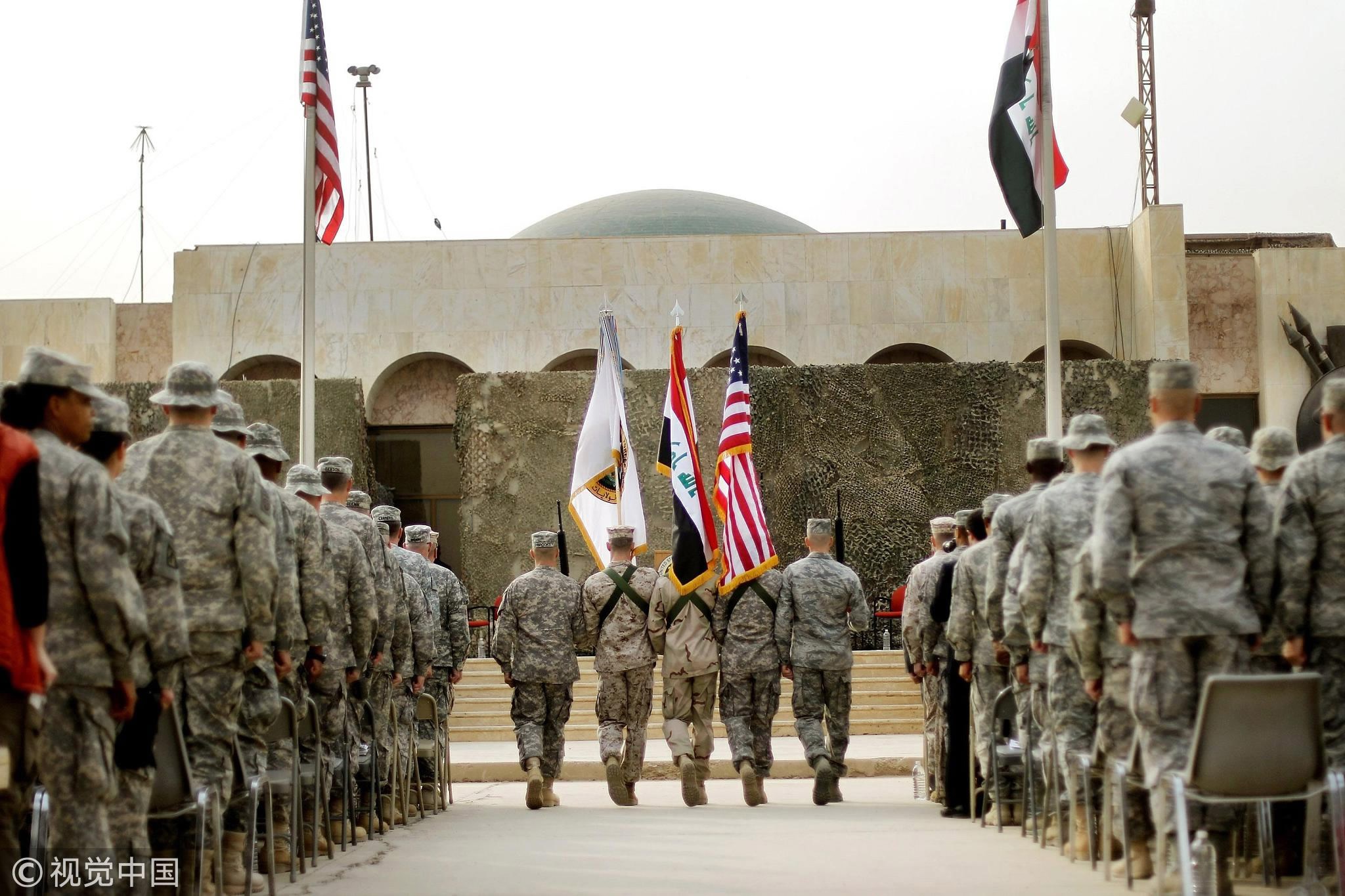
US Military personnel holding the US flag, Iraq flag, and the US Forces Iraq colors march during a casing ceremony where the United States Forces- Iraq flag was retired, signifying the departure of US troops from Iraq, at the former Sather Air Base on December 15, 2011 in Baghdad, Iraq. /VCG Photo
US Military personnel holding the US flag, Iraq flag, and the US Forces Iraq colors march during a casing ceremony where the United States Forces- Iraq flag was retired, signifying the departure of US troops from Iraq, at the former Sather Air Base on December 15, 2011 in Baghdad, Iraq. /VCG Photo
Out of the chaos grew extremist groups like ISIL, which easily overran predominantly Sunni areas, where people had felt persecuted since the fall of Saddam.
ISIL has been defeated and the guns are now largely silent, but pessimism persists.
"I think I will move abroad in time, because my children cannot live in such an environment, and this environment will continue because the errors are obvious, but we cant fix it, no one can fix it, its over our ability to face it," said Abu Hasan.
The final verdict might be that the fall of Saddam Hussein and the occupation of Iraq brought some good, but also an unimaginable degree of suffering to a nation that is only just beginning to recover from a decade and a half of bloodshed.

